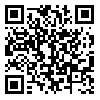Thu, Feb 19, 2026
[Archive]
Volume 34, Issue 1 (2-2020)
Med J Islam Repub Iran 2020 |
Back to browse issues page
Download citation:
BibTeX | RIS | EndNote | Medlars | ProCite | Reference Manager | RefWorks
Send citation to:



BibTeX | RIS | EndNote | Medlars | ProCite | Reference Manager | RefWorks
Send citation to:
Hayat A, Kohoulat N, Amini M, Faghihi S A A. The predictive role of personality traits on academic performance of medical students: The mediating role of self-efficacy. Med J Islam Repub Iran 2020; 34 (1) :541-547
URL: http://mjiri.iums.ac.ir/article-1-5913-en.html
URL: http://mjiri.iums.ac.ir/article-1-5913-en.html
Clinical Education Research Center, Shiraz University of Medical Sciences, Shiraz, Iran , faghihia@sums.ac.ir
Abstract: (2599 Views)
Background: Determining the variables influencing students’ academic performance is one of the main preoccupations in medical colleges. Therefore, this study examined the effect of the Big Five personality traits on medical students’ academic performance, considering the mediating role of self-efficacy.
Methods: We applied a cross sectional research design using a PLS-SEM approach. A total of 249 medical students participated in this study. Two valid and reliable questionnaires, including Big Five Inventory (BFI-10) and New General Self Efficacy (GSE) were used. Data were analyzed using both SPSS 18 and PLS2 software.
Results: The validity and reliability of the questionnaires were confirmed by confirmatory factor analysis. The results revealed that openness (β= 0.16, p<0.001), conscientiousness (β=0.22, p<0.001), agreeableness (β=0.19, p<0.001), and self-efficacy (β=0.24, p<0.001) had a significant positive and direct effect on academic performance. Neuroticism (β=-0.21, p<0.001) had a significant negative and direct effect on academic performance. Also, openness (β=0.47, p<0.001) and conscientiousness (β=0.33, p<0.001) had a direct positive effect on self-efficacy. Neuroticism (β=-0.15, p<0.001) had a direct negative effect on self-efficacy. Moreover, the results showed an indirect positive effect of conscientiousness (β=0.08, p<0.001) and openness (β=0.11, p<0.001) on academic performance through self-efficacy. In addition, the results showed that neuroticism (β=-0.03, p<0.001) had an indirect negative effect on academic performance through self-efficacy.
Conclusion: This study discovered the relationships between personality traits, self-efficacy, and academic performance of medical students. The results showed that individual differences in personality traits directly and indirectly play an essential role, through self-efficacy, in contributing to the students’ academic performance.
Methods: We applied a cross sectional research design using a PLS-SEM approach. A total of 249 medical students participated in this study. Two valid and reliable questionnaires, including Big Five Inventory (BFI-10) and New General Self Efficacy (GSE) were used. Data were analyzed using both SPSS 18 and PLS2 software.
Results: The validity and reliability of the questionnaires were confirmed by confirmatory factor analysis. The results revealed that openness (β= 0.16, p<0.001), conscientiousness (β=0.22, p<0.001), agreeableness (β=0.19, p<0.001), and self-efficacy (β=0.24, p<0.001) had a significant positive and direct effect on academic performance. Neuroticism (β=-0.21, p<0.001) had a significant negative and direct effect on academic performance. Also, openness (β=0.47, p<0.001) and conscientiousness (β=0.33, p<0.001) had a direct positive effect on self-efficacy. Neuroticism (β=-0.15, p<0.001) had a direct negative effect on self-efficacy. Moreover, the results showed an indirect positive effect of conscientiousness (β=0.08, p<0.001) and openness (β=0.11, p<0.001) on academic performance through self-efficacy. In addition, the results showed that neuroticism (β=-0.03, p<0.001) had an indirect negative effect on academic performance through self-efficacy.
Conclusion: This study discovered the relationships between personality traits, self-efficacy, and academic performance of medical students. The results showed that individual differences in personality traits directly and indirectly play an essential role, through self-efficacy, in contributing to the students’ academic performance.
Type of Study: Original Research |
Subject:
Medical Education
Send email to the article author
| Rights and permissions | |
 |
This work is licensed under a Creative Commons Attribution-NonCommercial 4.0 International License. |








